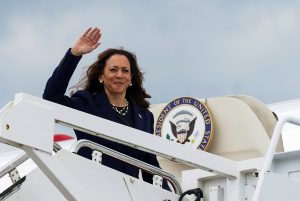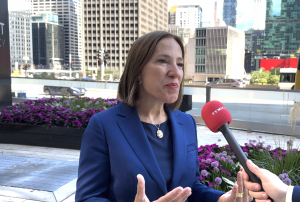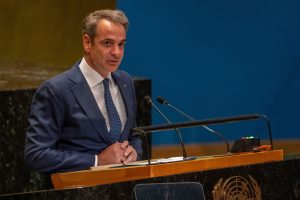As the U.S. presidential race enters its final stretch, both parties are vying for every vote, including those from the Greek-American community. Yet, despite their efforts, much of this outreach feels more symbolic gesture than meaningful engagement.
This notable absence of concrete positions on issues concerning Greek-American relations comes as a stark contrast to previous election years like 2008, when Greek issues featured prominently in both parties’ platforms.
This year, neither campaign has made any significant statements addressing key issues important to the Greek diaspora, raising concerns among prominent members of the community about the diminishing focus on bilateral relations.
Kamala Harris’ campaign recently organized a virtual event aimed at the Greek-American community. The event featured California Lieutenant Governor Eleni Kounalakis, Nevada Representative Dina Titus, and Christine Bertolina-Faust, co-chair of the campaign’s finance committee.
According to sources, the event was largely symbolic, with Kounalakis offering broad remarks on the value of democracy. Titus, while taking a more political tone, provided a general overview of the Biden administration’s achievements, but stopped short of addressing specific concerns about the future of Greek and U.S. bilateral ties.
A draft letter of support for Harris from Greek-American leaders, set to be published in the New York Times this Sunday, highlights the shared values between Greece and the U.S. rather than advocating for specific political commitments. This lack of detailed policy proposals has sparked concerns within the diaspora about the Democratic campaign’s commitment to addressing their particular issues.
In a similar fashion, the Republican campaign has struggled to offer a clear vision for Greek-American relations. Richard Grenell, a close ally and diplomatic advisor of Donald Trump, has been seen as a key figure in Trump’s outreach to the Greek diaspora.
During an interview with To Vima International Edition at a recent fundraiser in Philadelphia, Grenell sidestepped direct questions about U.S.-Turkey relations and whether the Trump administration would support advanced arms sales to Ankara in light of Turkey’s ongoing revisionist policies.
When pressed to clarify the administration’s stance, Grenell deflected, stating that the campaign’s focus was currently on the election.
On questions about ongoing energy projects in the Eastern Mediterranean, Grenell reiterated the administration’s “America First” doctrine. While he expressed interest in working with Greece to promote U.S. energy in Europe, he provided little detail on the future of key energy projects, such as the electrical interconnection between the two regions.
One of the more troubling aspects of Grenell’s interview was his lack of a concrete vision for a strategic partnership between U.S. and Greece. When asked about the future of bilateral ties, he responded with a remark more fitting for a social occasion than a diplomatic discussion, suggesting he would celebrate Trump’s victory with a party in Mykonos.
“I think we should immediately have a big party on Mykonos to celebrate President Trump getting elected,” he noted. “It is a place that is very special to me, and I go there every single year.”
Perhaps it would be fair to say that if Mr. Grenell intends to underscore the significance of U.S.-Greek relations, he might take a cue from former Secretary of State Mike Pompeo, who chose to visit Souda Bay in Crete—an important hub for defense cooperation—rather than the popular tourist destination of Mykonos.









